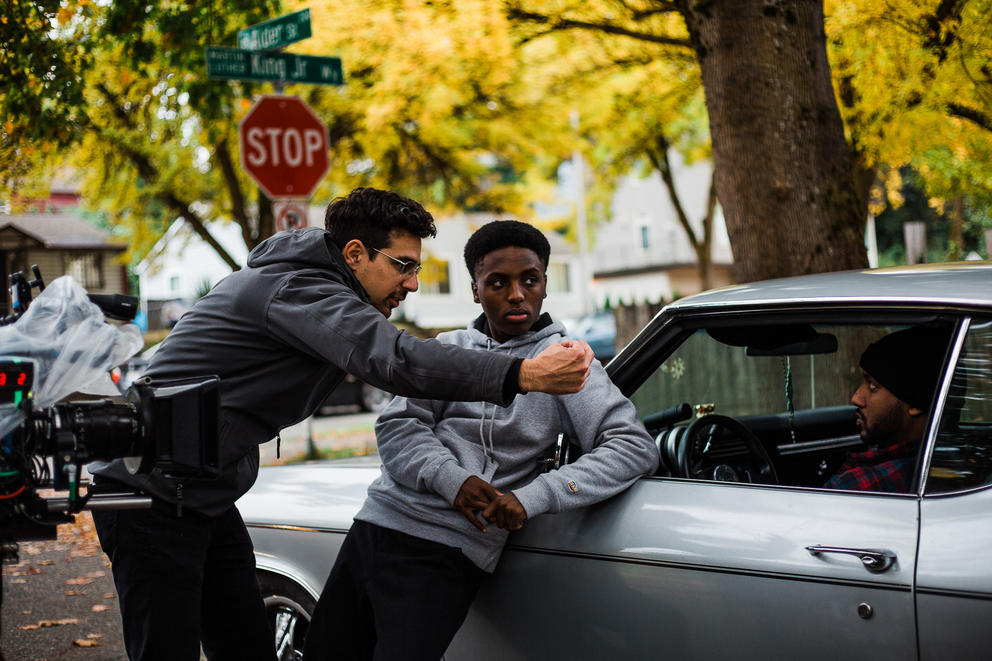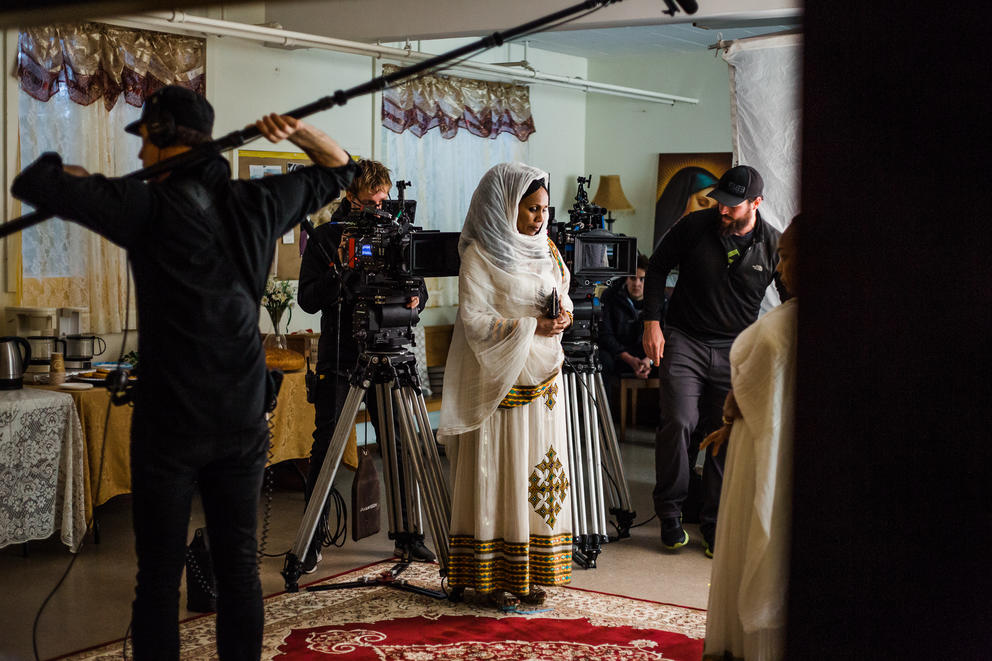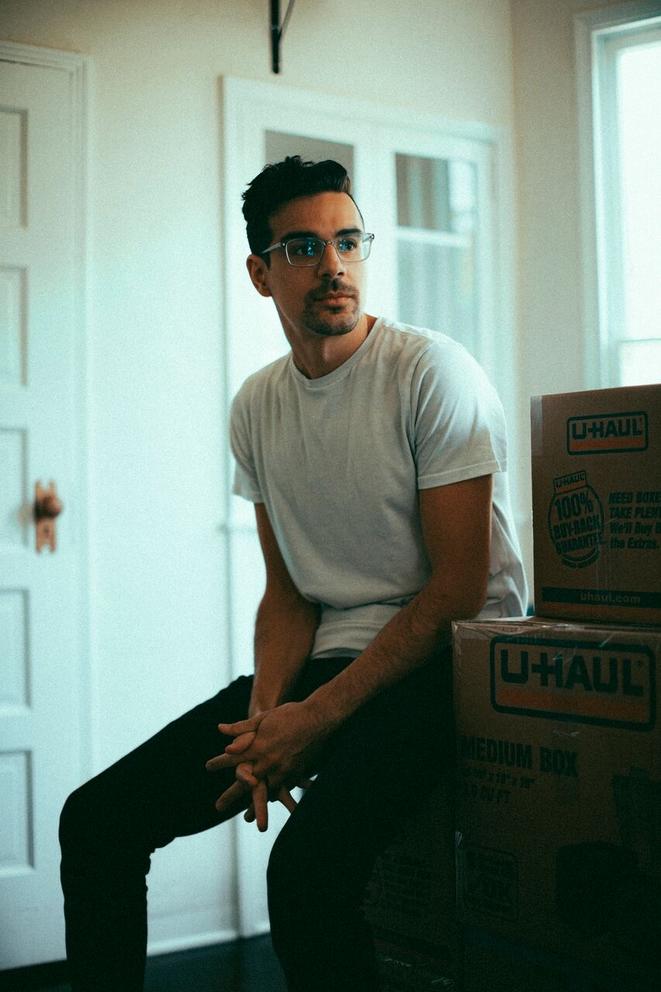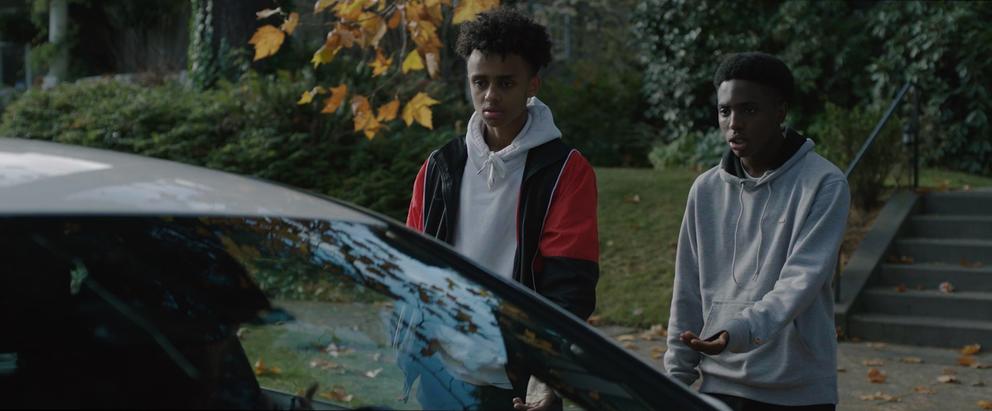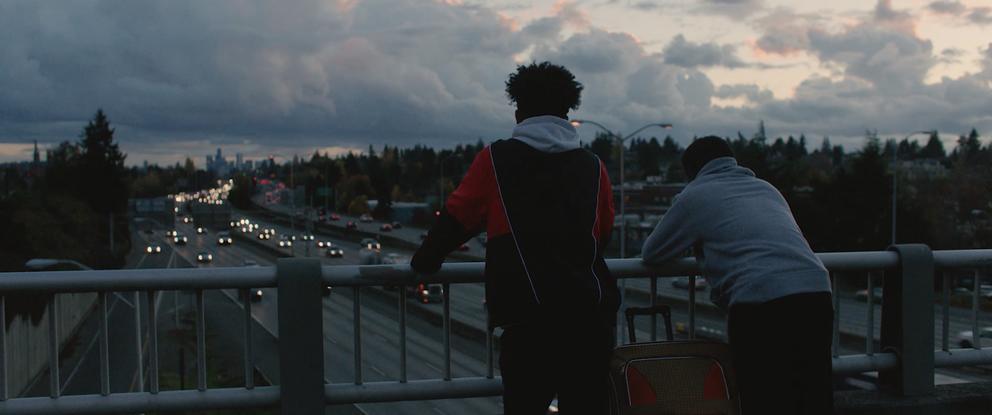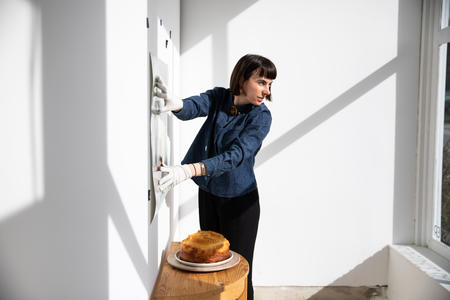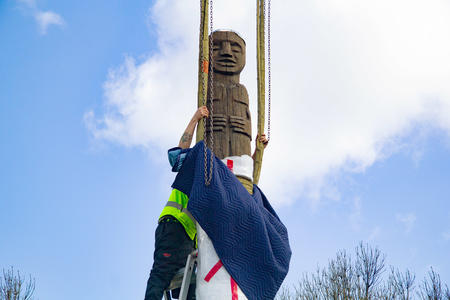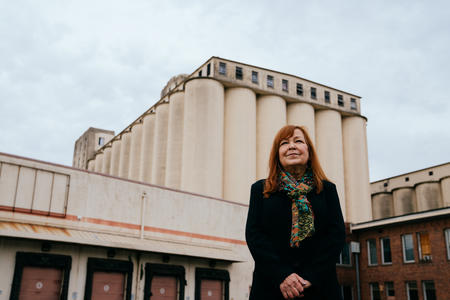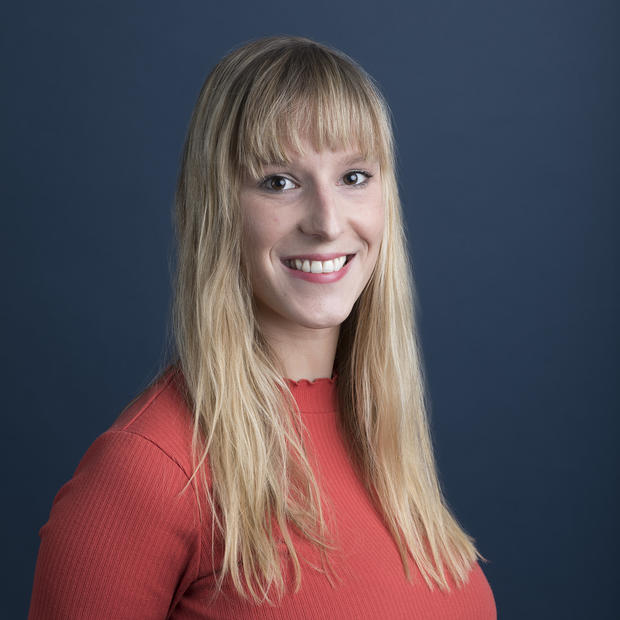From his music videos for Seattle musicians including Blue Scholars, Macklemore and Gabriel Teodros to Hagereseb (2015), his award-winning short film set in Seattle public housing development Yesler Terrace, Mohajerjasbi’s hometown has been his forever focal point.
It makes perfect sense, then, that his first feature film, the serpentine Know Your Place, set and shot in Seattle, will have its world premiere at the Seattle International Film Festival (April 14-24, online and in person). The hybrid festival marks SIFF’s post-pandemic return to theaters and features more than 200 films from across the world, as well as a small crop of local films, including this one. (Read more about the local films screening at SIFF 2022 in Crosscut’s Arts & Culture newsletter.)
Know Your Place — written, directed, co-produced and co-edited by Mohajerjasbi — follows an Eritrean-American teen, Robel Haile (played with terse intensity by local actor Joseph Smith), who grapples with the loss of his father and a city in the grips of gentrification.
“I call the film a love letter and a lament,” Mohajerjasbi says.
The movie was shot over the span of a few weeks in the fall of 2018 in Seattle’s Central District, Capitol Hill, Chinatown-International District and Queen Anne neighborhoods. Four years later, now preparing for its debut, Mohajerjasbi, 36, says, “Man, it’s cathartic and nerve-racking in equal parts.”
The premiere is just two days away. But right now he’s in L.A., buried in the studio working on folding in an original score, tweaking the sound and color-correcting the images to make sure everything’s in place before he and the film make their way to Seattle.
Coming back to this city, Mohajerjasbi says, is like seeing an old friend. With the distance of time and space, the changes stand out more starkly; you notice the wrinkles that weren’t there before, the new inches of hair. “Those differences in appearance are far more obvious than when you're looking at yourself in the mirror every day,” he says. “I’ll come back and I’ll be like: ‘Oh, this is gone. Oh, no Pollo San Fernando is gone,’ ” he says. “When people talk about gentrification and things changing…. it really isn't an exaggeration.”
This sense of change and loss throbs in the background of Know Your Place. But it’s first and foremost a story about Robel, a 15-year-old kid, and his family and community — and how they navigate the city and the changes and challenges of life.
Robel’s task of delivering a suitcase (filled with medicine, destined for a family member in Eritrea) morphs into an epic and emotional journey, landing him and his best friend in various corners of the city. Along the way, scenes of a white couple inquiring about a house, a character’s move up north to escape increasing rent and a blue-and-white new development sign all suggest a city in the grips of gentrification. But calling it a movie about gentrification, or displacement, sounds too abstract, too much like a “topic,” Mohajerjasbi says.
“Gentrification is a very … intimate concept,” he says, impacting people in different ways and to various degrees. “And at the same time, it’s also an abstraction, a macro thing. I think sometimes when it’s talked about, in … [the] cultural lexicon, we lose this sense that you’re talking about humans.”
“To tell a story,” he adds later, “is to personalize something.”
For Mohajerjasbi, Know Your Place is personal: While he’s not Eritrean or Ethiopian, much of the film grew out of his friendships with people in those communities, as well as his earlier work making music videos for local bands in the 2000s. The nexus at the time was Hidmo, a Central District Eritrean restaurant and arts/community hub run by the late Rahwa Habte. At Hidmo, Mohajerjasbi found community and collaborators. Among them was a group of people who had grown up in Yesler Terrace — the country's first racially integrated public housing project, massively redeveloped starting in the mid-2010s — which inspired his short film, Hagereseb.
“Things in Seattle have changed with increasing pace and rapidity,” Mohajerjasbi says. “... as an artist, it's like: ‘Can I do something that captures a sense of what was beautiful to me?’ ”
The friendships he made at Hidmo have endured, as have the connections with the local community of first-time actors cast in Hagereseb. Impressed by local actors Joseph Smith and counterpart Natnael Mebrahtu, Mohajerjasbi cast the pair (both then students at Garfield High School) again in Know Your Place.
“With the caliber of performance that I saw from them just at 10 years old, I was like: ‘I don't feel like our work is done. I really want to do something else,’ ” he says.
Other elements from his older work have snaked their way into Know Your Place as well: the bus ride from his shot-on-a-shoestring Joe Metro music video for the legendary local hiphop group Blue Scholars. There's also the sense of closeness emanating from his nonfiction YouTube docuseries The Charcoal Sky, in which Seattleites could tell winding, meandering stories in their own time, treated as stars instead of side characters.
“That's always important for me, because that's how I see all of us in the world: All of our stories are in relationship to other stories happening,” Mohajerjasbi says.
Also making a comeback in Know Your Place: Mohajerjasbi’s love for aerial shots of Seattle, its skyline peeking up from the fog, its little boxes on the hillside lighting up at dusk, its dark trees softening the built environment. But while many locals will recognize the skyline — perhaps aided by a cameo of the Central District’s Immaculate Conception Catholic Church — there aren’t many obvious “clues” to the movie’s location. In fact, the Space Needle (and the rain!) makes an appearance only at the end, a tiny beacon in a wide-angle shot.
Including the Space Needle would have been “the equivalent of casting an A-list actor in a small drama,” says Mohajerjasbi, a University of Washington alum. “You can't get over the fact that you're watching this famous actor do this really muted and grounded performance.” Instead, the aerial shots represent exactly what the characters see at each point in their odyssey. “We're in Seattle, but we're living it at the level of the neighborhood, or the street,” he says.
This has been Mohajerjasbi’s longtime approach (see also: his music videos for Gabriel Teodros and Macklemore, featuring skylines from a south end vantage point). “Like, we've seen the postcards, but here's the Seattle that's even more beautiful,” he says. “I'm hoping that I can communicate that feeling, and in the choice of images give you a sense of place. But from a [perspective] that folks that don't live around Kerry Park are seeing — because that's like, what, 10 degrees of a whole circle around our city? Kerry Park’s beautiful. But we've seen it.”
Instead, in Know Your Place, the city has room to breathe, now that the “A-list actor” isn’t sucking the air out of the room. The Seattle-ness is more subtle, embedded. It’s in the faces, in the languages (mostly English and Tigrinya), the Metro buses, the splendid colors of the foliage, the elusive, low sunlight and dramatic clouds of fall in the Northwest.
The nerve-racking question for Mohajerjasbi now is how his film will land with a Seattle audience. He’s also thinking about a national viewership, hoping for a wider film festival run and official distribution of some kind. That may be months or even years away, but he’s already finished writing the screenplay for a short film with writing partner Christian Rabin. And guess what? It’s set in Seattle.
‘Know Your Place’ is streaming online from April 14-24 and screens in person at SIFF Cinema Egyptian on April 17 and at Ark Lodge Cinema on April 19.

